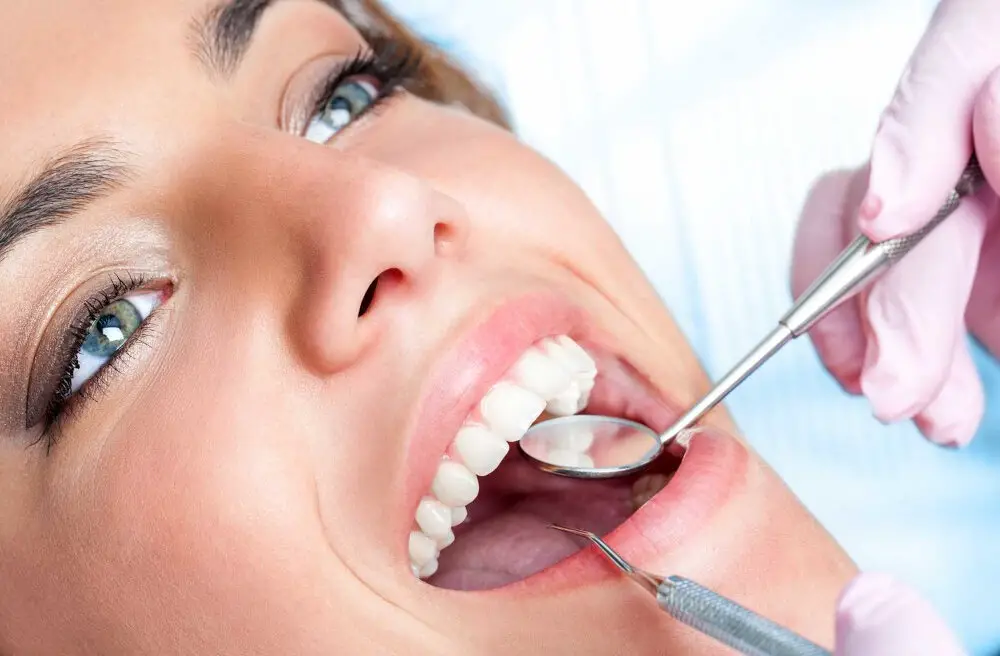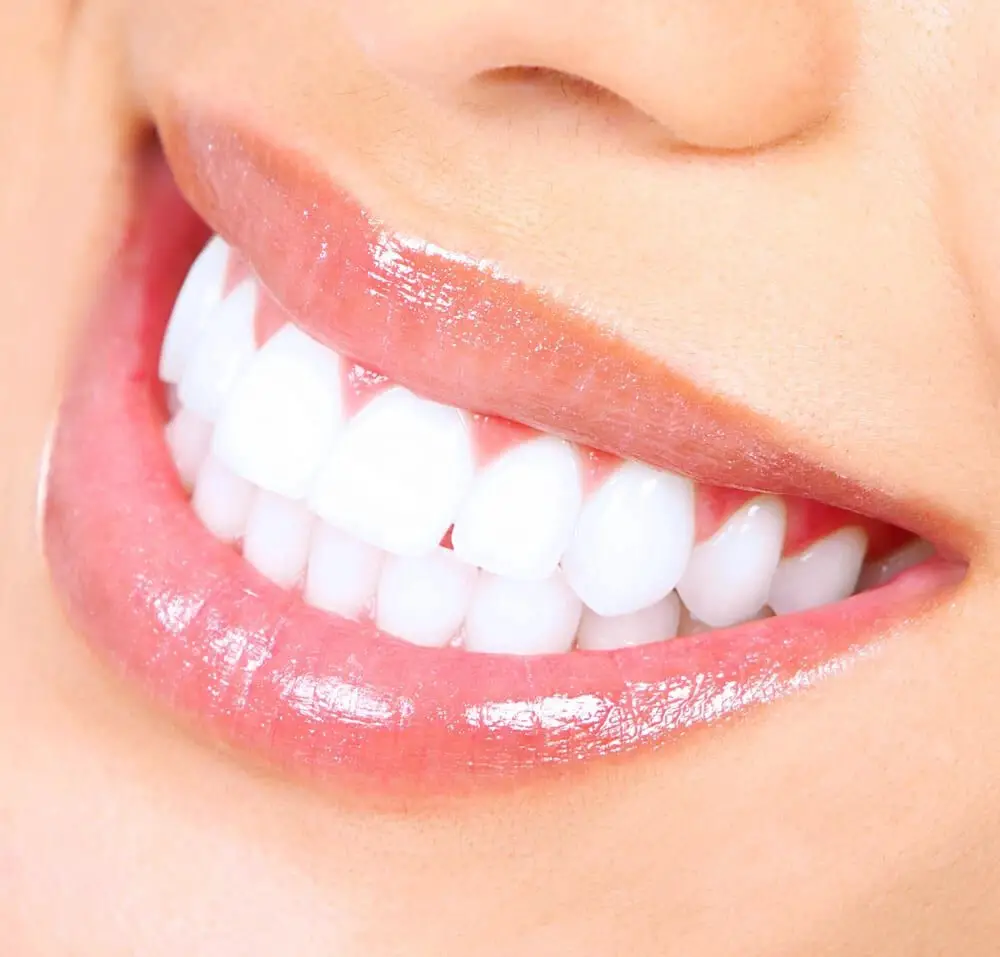Spinach Teeth: Exploring the Surprising Reason Behind the Weird Sensation

Spinach, a healthy and nutrient-rich vegetable, is often consumed for its numerous benefits. However, it is also known for causing a strange and unpleasant sensation in the teeth of many people. This sensation, commonly referred to as \spinach teeth,\ can leave individuals feeling confused and uncomfortable. In this article, we will explore the surprising reason behind this phenomenon and discuss ways to alleviate the discomfort caused by spinach teeth. The sensation of spinach teeth is described as a chalky or gritty feeling on the teeth that can be accompanied by an unpleasant taste. This sensation is not harmful or dangerous, but it can be a nuisance and affect one’s enjoyment of eating spinach. While the cause of this sensation was once thought to be due to the high levels of oxalate in spinach, recent studies have shown that there may be more to the story. Join us as we delve deeper into the science behind spinach teeth and uncover the truth behind this strange phenomenon.
Have you ever experienced a strange sensation after eating spinach? It’s a bizarre feeling that makes your teeth feel rough or gritty, almost like you’ve just brushed them with sandpaper. This phenomenon, known as spinach teeth, has puzzled scientists and spinach lovers alike for years. In recent studies, researchers have found that the culprit behind this sensation is the high levels of oxalic acid found in spinach. When combined with calcium in our saliva, it forms calcium oxalate crystals that stick to our teeth, giving us that unpleasant feeling. Despite the odd sensation, spinach is still a highly nutritious leafy green that provides a wealth of health benefits.
Understanding the cause behind any unusual phenomenon is crucial in order to find an effective solution. In the case of spinach teeth, it is important to know the reason behind the weird sensation to prevent it from happening again. By exploring the root cause, we can learn more about the chemical composition of spinach and its interaction with the teeth. This knowledge can also lead to the development of new dental products that can counteract the effects of spinach teeth. Moreover, understanding the cause can help individuals who are experiencing this issue to take preventative measures such as cooking the spinach before consumption or brushing their teeth immediately after eating it. In short, understanding the cause is essential in finding a solution and preventing future occurrences of spinach teeth.
\Spinach Teeth: Exploring the Surprising Reason Behind the Weird Sensation\ is an article that delves into the mystery of why spinach sometimes leaves a gritty, metallic feeling on teeth. The article explores the science behind spinach’s composition, particularly its high levels of oxalic acid and calcium, which can combine to form calcium oxalate crystals. These crystals can then become lodged on teeth, causing the strange sensation. The article also discusses ways to prevent this uncomfortable feeling, such as pairing spinach with calcium-rich foods or drinking water while eating. Overall, \Spinach Teeth\ provides an informative and interesting look into a common and curious phenomenon.
What Causes Spinach Teeth?

Spinach is a nutritious leafy green vegetable that is often consumed in salads, smoothies, and other dishes. However, one of the downsides of eating spinach is the phenomenon known as \spinach teeth.\ This refers to the strange sensation of feeling a gritty film on your teeth after consuming spinach. So, what causes spinach teeth? The culprit is oxalic acid, a naturally occurring compound found in spinach and other leafy greens. When we consume spinach, the oxalic acid in the leaves binds with calcium in our saliva, forming calcium oxalate crystals. These crystals are insoluble and can cling to the surface of our teeth, causing the gritty sensation that we feel. The sensation is often described as feeling like sand or dirt on the teeth. While it may be uncomfortable, spinach teeth are generally harmless and can be easily remedied by brushing and flossing after eating spinach or other foods high in oxalic acid. Additionally, drinking plenty of water can help flush out any residual oxalic acid or calcium oxalate crystals from the mouth.
Oxalic acid is a naturally occurring compound found in several plants, including spinach. It is known for its sharp and sour taste and is responsible for the weird sensation experienced while eating spinach. When oxalic acid combines with calcium, it forms calcium oxalate, which is a crystal-like substance that can stick to teeth, causing that strange feeling. Although oxalic acid is not harmful in small amounts, it can cause digestive discomfort and kidney stones if consumed in large quantities. Therefore, it is recommended to consume spinach in moderation and to balance it out with other vegetables in your diet to avoid any unwanted effects.
Oxalic acid present in spinach can have a negative impact on teeth. When consumed in large quantities, oxalic acid can bind with calcium in the saliva, forming calcium oxalate crystals that can accumulate on the surface of teeth, leading to a gritty sensation. Additionally, these crystals can also cause enamel erosion, making teeth more susceptible to decay and sensitivity. While spinach is a healthy and nutritious food, it’s important to consume it in moderation and maintain good oral hygiene to prevent any adverse effects on teeth.
Scientific studies on spinach teeth have shed some light on the weird sensation experienced by many people after consuming the leafy green. According to researchers, the culprit behind this strange feeling is oxalic acid, a natural compound found in spinach and other vegetables like rhubarb and beet greens. When oxalic acid comes into contact with calcium in the mouth, it forms calcium oxalate crystals, which can create a gritty texture on the teeth. While this sensation is harmless and temporary, it can be uncomfortable for some individuals. However, it’s important to note that spinach is still a highly nutritious food that provides a plethora of health benefits, so don’t let spinach teeth deter you from enjoying this superfood.
Other Foods That Cause Similar Sensations

Spinach is not the only food that can cause a weird sensation in your mouth. Some other foods have similar effects on your teeth, such as beets, rhubarb, and blackberries. These foods contain oxalic acid, which when combined with calcium, creates calcium oxalate crystals. These crystals can form on your teeth, causing a gritty feeling and staining them. However, unlike spinach, these foods are not as notorious for causing this sensation. Another food that can cause a similar sensation is carbonated beverages. The carbonation in drinks like soda, seltzer, and sparkling water can erode the enamel on your teeth, leading to sensitivity and a rough feeling. The acid in these drinks can also cause staining, making your teeth appear yellow or brown. It’s important to limit your consumption of carbonated drinks and to drink water to rinse your mouth afterward to prevent these effects.
Oxalic acid is present in various foods other than spinach, including rhubarb, beets, peanuts, cocoa powder, sweet potatoes, and almonds. It is a naturally occurring organic compound that binds with calcium in the body, forming crystals that can cause discomfort or pain in sensitive individuals. Although oxalic acid is not harmful in moderate amounts, excessive consumption of foods containing high levels of oxalates can lead to the formation of kidney stones, a condition that causes excruciating pain and discomfort. People with a history of kidney stones or other kidney-related problems should be cautious when consuming oxalate-rich foods and consult with their healthcare providers.
Different types of foods can cause various sensations in the mouth. For instance, spicy foods can cause a burning sensation due to the presence of capsaicin. Sweet foods can cause a pleasurable sensation due to the release of endorphins. Salty foods can cause a slight tingling sensation due to the presence of sodium ions. However, in the case of spinach teeth, the sensation is quite unique and unpleasant. It is described as a gritty feeling or as if there is something stuck in the teeth. This sensation is caused by the presence of oxalic acid in spinach, which binds with calcium in the teeth to form calcium oxalate crystals. As a result, the crystals scratch the surface of the teeth, causing the gritty feeling.
Moderation is key when it comes to consuming spinach and other leafy greens. While these nutrient-packed vegetables offer a wide range of health benefits, including vitamins, minerals, and antioxidants, they also contain oxalic acid, which can bind with calcium and cause a gritty sensation on teeth. Consuming too much spinach can also lead to the formation of kidney stones in some individuals. Therefore, it is important to enjoy spinach in moderation and to pair it with other calcium-rich foods such as dairy products or almonds to help counteract the effects of oxalic acid. By being mindful of how much spinach we consume, we can continue to reap the benefits of this superfood without experiencing any unwanted side effects.
Preventing Spinach Teeth

Spinach teeth may sound like a strange phenomenon, but it is a real thing that affects many people who love to eat this leafy green. The sensation of spinach teeth is caused by the high levels of oxalic acid found in spinach. When consumed, the oxalic acid binds to the calcium in our saliva, forming calcium oxalate crystals that can leave a gritty feeling on our teeth. Fortunately, there are some simple steps we can take to prevent spinach teeth and continue enjoying this healthy vegetable. Firstly, one of the best ways to prevent spinach teeth is to cook the spinach. Cooking breaks down the oxalic acid, reducing its ability to bind with calcium in our saliva. Steaming, sautéing, or boiling spinach can all be effective methods for reducing the risk of spinach teeth. Additionally, pairing spinach with calcium-rich foods, such as dairy products or calcium-fortified drinks, can help to counteract the effects of oxalic acid. Finally, drinking water or swishing with water after eating spinach can help to remove any remaining oxalate crystals from our teeth and reduce the gritty sensation. By following these simple tips, we can continue to enjoy the many health benefits of spinach without worrying about spinach teeth.
Spinach teeth can be an annoying and embarrassing problem for many people, but there are several tips that can help minimize the risk of experiencing it. Firstly, it is important to thoroughly wash and dry the spinach leaves before consuming them, as this can help remove any grit or sand that may be present. Additionally, chewing the spinach thoroughly and slowly can help break down the fibers and reduce the likelihood of them getting stuck in between teeth. Swishing water around in the mouth after eating spinach can also help dislodge any remaining pieces. Finally, incorporating other leafy greens into the diet, such as kale or arugula, can provide similar nutritional benefits without the risk of spinach teeth. By following these simple tips, individuals can enjoy the health benefits of spinach without having to deal with the uncomfortable sensation of spinach teeth.
Proper dental care is crucial for maintaining healthy teeth and gums. Neglecting oral hygiene can lead to a range of dental issues like cavities, gum disease, and even tooth loss. It is vital to brush twice a day and floss at least once a day to remove plaque and bacteria that can cause these problems. Regular visits to the dentist for cleanings and checkups can also help prevent or catch any issues early on. In addition, a balanced diet that includes foods rich in calcium and vitamin D, like spinach, can strengthen teeth and prevent decay. Taking care of your teeth not only ensures a bright, healthy smile but also contributes to your overall well-being.
If you’re one of those people who experience the unpleasant sensation known as \spinach teeth,\ don’t worry – there are plenty of alternatives to this leafy green that can provide similar nutritional benefits. For example, kale is a great option that is just as nutrient-dense as spinach, but doesn’t have the same effect on your teeth. Other dark, leafy greens like collard greens, Swiss chard, and arugula are also great options. If you’re looking for something with a milder flavor, try romaine lettuce or bok choy. And if you’re really missing the taste of spinach, consider adding some spinach powder to your smoothies or soups – you’ll still get the nutritional benefits without the sensation.
Spinach teeth, a term coined for the weird sensation of feeling like teeth are coated in fur after eating spinach, has puzzled many people. However, a recent study has shed some light on this phenomenon. The study found that spinach contains high levels of oxalic acid, which can bind to calcium in saliva and form calcium oxalate crystals. These crystals can then stick to teeth and create the sensation of a furry coating. While spinach is a nutritious vegetable, it’s important to rinse your mouth with water after eating it to prevent this strange feeling.
Being aware of how food affects our bodies is crucial to maintaining good health and avoiding unpleasant experiences such as spinach teeth. The food we eat provides the necessary nutrients that our bodies need to function properly, and it can have a significant impact on our physical and mental well-being. Eating a balanced diet that includes plenty of fruits, vegetables, whole grains, and lean proteins can help us maintain a healthy weight, reduce the risk of chronic diseases, and improve our mood and energy levels. On the other hand, consuming foods that are high in sugar, salt, and unhealthy fats can lead to weight gain, heart disease, and other health problems. Understanding how different foods affect our bodies can help us make informed choices about what we eat and ensure that we are getting the nutrients we need to stay healthy.
In conclusion, spinach teeth can be a strange and uncomfortable sensation that is caused by the oxalic acid found in spinach. While some individuals may be more susceptible to this sensation than others, it is generally not harmful and can be easily remedied by drinking water or eating other foods to neutralize the acid. However, it is important to note that oxalic acid can interfere with calcium absorption and may contribute to the formation of kidney stones for those with pre-existing kidney issues. Therefore, moderation in spinach consumption may be necessary for some individuals. Nonetheless, spinach remains a nutritious and delicious vegetable that can be enjoyed in a variety of ways.
Conclusion

In conclusion, spinach teeth may be a weird and uncomfortable sensation that many people experience after consuming this leafy green vegetable, but the reasons behind it are quite fascinating. The oxalic acid found in spinach binds with calcium in our saliva and forms calcium oxalate crystals, which can lead to that gritty feeling on our teeth. However, this doesn’t mean that we should avoid spinach altogether, as it is a highly nutritious food that offers many health benefits. Rather, we can take steps to minimize the effects of oxalic acid by cooking our spinach, pairing it with calcium-rich foods, or simply rinsing our mouths with water after eating. By understanding the science behind spinach teeth, we can continue to enjoy this delicious and nutritious vegetable without any unpleasant side effects.







